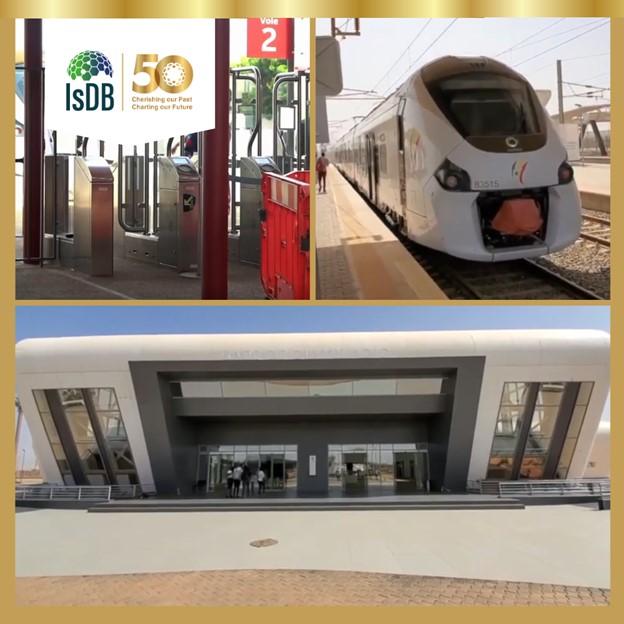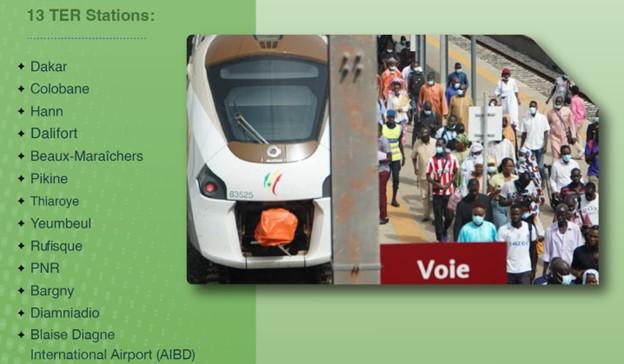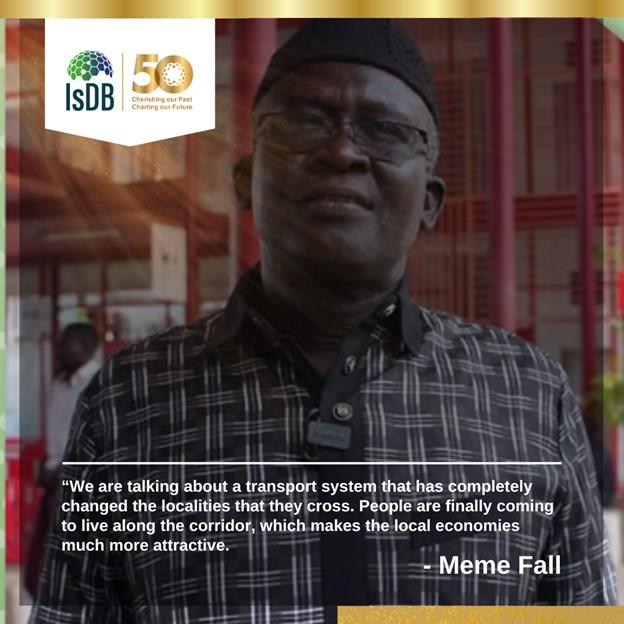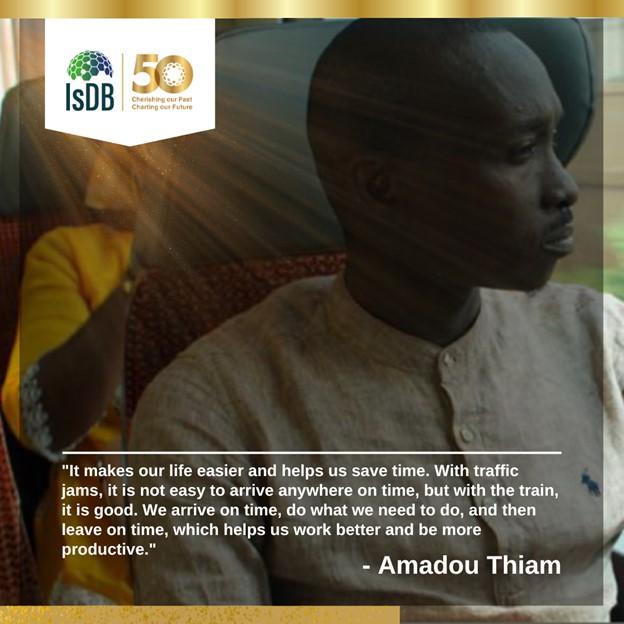Senegal's Express Train: A Story of Transformation, Opportunity, and Sustainability
Senegal's vibrant capital, Dakar, pulsates with the energy of a thriving economy. Offering nearly 85% of the nation's jobs, it attracts a constant influx of hopeful individuals seeking a brighter future. This rapid urbanization, however, has presented a formidable challenge – the city's infrastructure, particularly its transportation network, has struggled to keep pace with its expanding population. Overwhelmed by a surge of 100,000 new residents annually, Dakar found itself choked by relentless traffic congestion, hindering the movement of people and goods, and threatening to stifle its economic potential.

Recognizing the urgent need for a solution that addressed both mobility and environmental concerns, the Islamic Development Bank (IsDB) joined hands with Senegal to embark on a groundbreaking project: the construction of West Africa's first fast train railway network. This ambitious initiative was aimed not only to alleviate the immediate congestion woes of Dakar but also to lay the foundation for sustainable development and regional integration.
Phase one of the project, completed in December 2021, marked a significant milestone. It brought a modern train service, the Dakar-Diamniadio Regional Express Train (TER), connecting the bustling capital with the city of Diamniadio, spanning 36 kilometers. This vital link, served by 13 strategically placed stations, has transformed the way residents move within the corridor.

"The Dakar-AIBD regional express train project is a solution to the mobility problem that has arisen in Dakar over the past decade," says Meme Fall, Head of Railway Systems and Rolling Stock Engineer. "It is not just about transporting people; it's about transforming lives."

The impact is undeniable. Residents like Abdul Hessam, who previously lived in Bargny, a community outside Dakar, can now effortlessly access the city for work and other opportunities. The TER has bridged the gap, fostering economic inclusivity and allowing individuals like Hessam to take part in the city's vibrant economy.
But the project's benefits extend far beyond individual stories. The improved connectivity has spurred a ripple effect, revitalizing rural economies along the train corridor. As Fall further explains, "People are finally coming to live along the corridor, which makes the local economies much more attractive." This influx of residents translates to increased demand for local goods and services, leading to the creation of new businesses and job opportunities, empowering communities, and fostering sustainable development throughout the region.
Senegal's commitment to a sustainable future is at the heart of this project. The TER uses eco-friendly, hybrid trains powered by both electricity and diesel. This innovative approach offers a cleaner alternative to congested roads, significantly reducing reliance on personal vehicles and contributing to a greener future. According to Fall, the TER has the potential to eliminate the pollution of 1900 buses daily, leading to an estimated decrease in CO2 emissions by 17,000 tons annually.

Passengers like Amadou Thiam experienced the project's benefits firsthand. "It is very useful for us," he says. "It makes our life easier and helps us save time. With traffic jams, it is not easy to arrive anywhere on time, but with the train, it is good. We arrive on time, do what we need to do, and then leave on time, which helps us work better and be more productive."
The first phase alone sees over 115,000 daily passengers, a testament to the transformative power of the TER. This number is expected to double upon completion of the second phase, which will extend the line to the Blaise Diagne International Airport, further enhancing regional connectivity.
Beyond its practical benefits, the TER fosters social inclusivity. The project caters to diverse needs by offering wheelchair accessibility and affordable subscription cards, ensuring that everyone has the opportunity to experience the convenience and efficiency of the train service.
The collaboration between the IsDB and Senegal on the Dakar-AIBD Regional Express Train project is a shining example of how innovative infrastructure development can address critical challenges, promote regional integration, and propel a nation towards a resilient and sustainable future. By facilitating access to essential services like healthcare and education, the project fosters socio-economic development and empowers communities across the region.

Senegal's express train stands for not just a transportation network; it's a symbol of hope, opportunity, and a shared vision for a brighter future. As the project continues to evolve, it has the potential to serve as a model for sustainable development initiatives across Africa and beyond, paving the way for a future where economic growth goes hand in hand with. environmental responsibility and social progress.
The story of Senegal's Express Train is far from over. The completion of the second phase, extending the line to the airport, is expected in 2026, further solidifying Dakar's position as a regional economic hub. Additionally, future plans envision connecting the TER to neighboring countries, fostering even greater regional integration and unlocking new economic opportunities across West Africa.
This project serves as a powerful testament to the transformative potential of collaboration. Through the joint efforts of the IsDB, the Senegalese government, and the dedication of countless individuals, Senegal has embarked on a journey towards a more sustainable and prosperous future.
The story of the TER is not merely a narrative of infrastructure development; it's a compelling illustration of how a single project can ripple outwards, impacting countless lives and shaping the trajectory of a nation. As Senegal continues to move forward on its development path, the legacy of the Express Train will undoubtedly play a pivotal role in shaping a brighter future for generations to come.